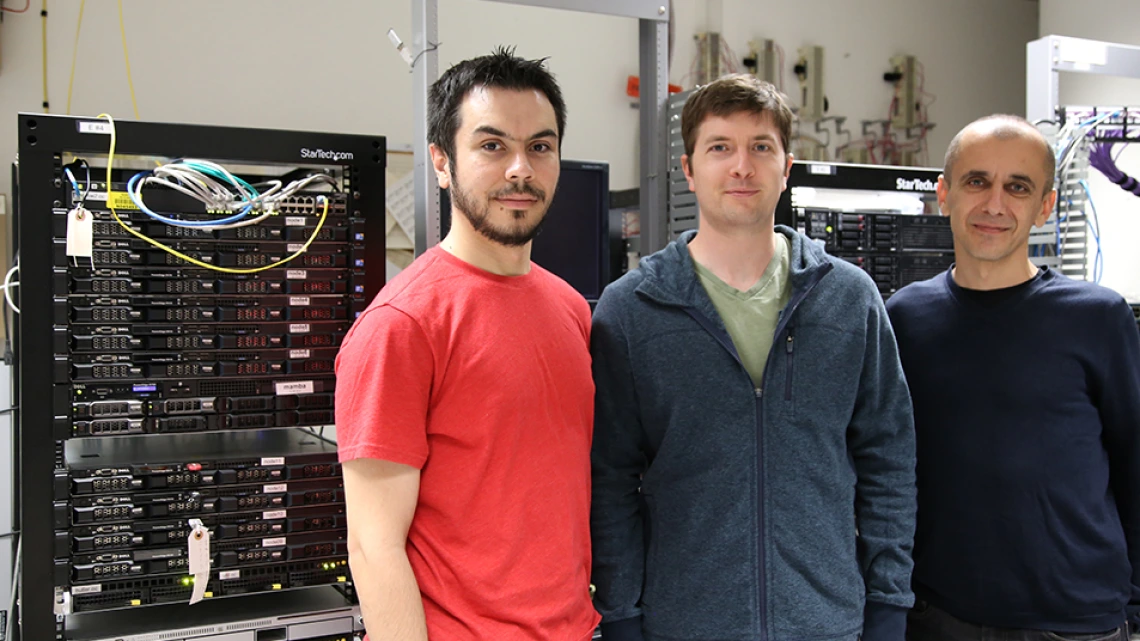UA Startup Licenses Natural Language Processing Algorithm

What started as cancer research led to a new method for extracting the most useful information from entire bodies of research
Tucson, Ariz. – The University of Arizona has licensed an automated information extraction software system invented in the College of Science to startup Lum.AI(link is external) LLC. Mihai Surdeanu(link is external), PhD, associate professor in the Department of Computer Science in the College of Science, was the lead inventor who developed the system in collaboration with PhD candidate Gustave Hahn-Powell in the College of Social and Behavioral Sciences focusing on computational linguistics alongside computer science postdoc Marco Antonio Valenzuela-Escárcega, PhD.
“We were faced with the problem of developing a holistic understanding of the field of signaling pathway fragments involved in cancer from biomedical research,” says Surdeanu. “We needed an automated system to extract that information from the millions of papers and journals published each year.”
Not only did the team develop this system, but they designed it with the end-user in mind, ensuring that the results generated are easy to interpret.
As it stands, there are millions of bio-related papers and journals published yearly. For a researcher or clinician, developing a truly holistic understanding of the field – for example, the systematic matching of genomic alterations in a tumor with proper drug treatments – is an immense task. In order to develop a complete understanding of the different mechanisms and cellular processes involved in a specific tumor type, the inventors devised an automated system to extract this information from the literature and generate easily interpretable answers for users.
The inventors worked with Tech Launch Arizona, the office of the UA that commercializes inventions stemming from University research, to protect the intellectual property and develop their company launch strategy.
According to experienced technology entrepreneur and TLA Mentor-in-Residence Kevin McLaughlin, this technology offers an entirely new way to process data by looking at the linguistic correlations and dependencies across publications in a field of research.
“Tech extraction is more than a word search, it looks at relationships by understanding syntax of anything written. By going through this syntax, you can understand relationships much better,” says McLaughlin. “Lum.AI’s technology can make a huge impact in fields like biodiscovery and biodiversity.”
Having received support from both DARPA (link is external)and the Bill & Melinda Gates Foundation(link is external), Lum.AI plans to expand to new markets and countries.
“We are a diverse team," says Surdeanu. “This is beneficial because it will help us scale our technology to other countries and languages. With huge markets in Latin-speaking countries, we plan on scaling to Portuguese and Spanish speaking regions.”
Most recently, Lum.AI has entered into the agricultural market. Partnering with The Soil Health Institute(link is external), The American Society of Agronomy(link is external), Crop Science Society of America(link is external) and Soil Science Society of America(link is external), the company is working to expand their technology to accelerate the retrieval and use of soil health research.

